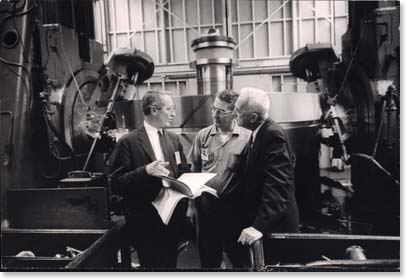In the last two blogs (1,2), I discussed the vital importance that attention and interest play in improving productivity. I built a case that interest and attention are the most important ingredients for increasing productivity in those you manage. Furthermore, I emphasized that prying into the lives of your agents is the only way to know what motivates them deeply. Chances are, if they have fallen into a slump, they've probably forgotten their primary motivation for doing what they do.
 In addition, I mentioned a study in last week's editions that has spurred some questions from readers. The number one question I've received is, "What is the Hawthorne Study?"
In addition, I mentioned a study in last week's editions that has spurred some questions from readers. The number one question I've received is, "What is the Hawthorne Study?"
The answer to this question should motivate you to set aside ample time to adequately address a very important human need… The study took place at a Western Electric factory outside of Chicago, between 1924 and 1932. Although the study wasn't originally designed to research productivity, it in fact did illuminate a great deal on the subject.
In essence, what the researchers found after carefully measuring peoples' performance, was that the measuring, in and of itself, improves productivity. Researchers concluded that the workers worked harder because they knew that they were being individually monitored — They hypothesized that being treated as special (as evidenced by working in a separate room), and having an attentive and interested supervisor, were the real reasons for the productivity increase. The above is called to this day: "The Hawthorne Effect."
Most of you know, we at Tidemark write about measurement, metrics, and accountability exhaustively. Attention to these things has been proven to increase performance dramatically.
So, what about agent production? How can you apply the Hawthorne Effect to your agents?
- Set up meetings, alone, with each of your agents. Make sure that they hear you tell your assistant to not be interrupted during your meeting.
- Coach them by deliberately prying about their life, their goals, their families, their dreams…
- Coach by setting goals, measuring progress, and holding agents accountable.
- Follow up! You must track and follow up to show you care.
The above…… research shows, in and of itself…… will increase motivation.
Editor's Note: This article was written by Dr. David Mashburn. Dave is a Clinical and Consulting Psychologist, a Partner at Tidemark, Inc. and a regular contributor to WorkPuzzle. Comments or questions are welcome. If you're an email subscriber, reply to this WorkPuzzle email. If you read the blog directly from the web, you can click the "comments" link below.

